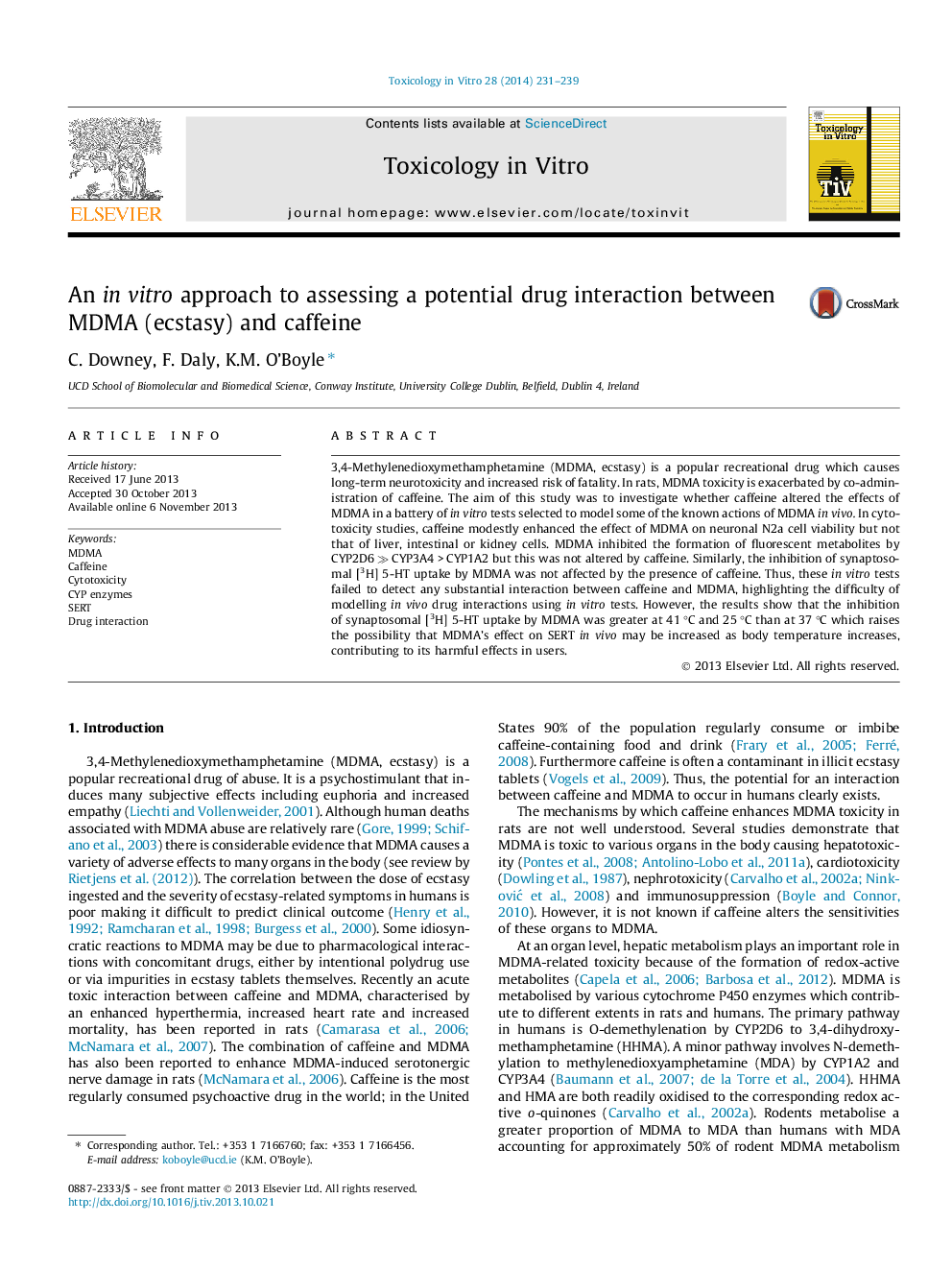| Article ID | Journal | Published Year | Pages | File Type |
|---|---|---|---|---|
| 5862419 | Toxicology in Vitro | 2014 | 9 Pages |
Abstract
3,4-Methylenedioxymethamphetamine (MDMA, ecstasy) is a popular recreational drug which causes long-term neurotoxicity and increased risk of fatality. In rats, MDMA toxicity is exacerbated by co-administration of caffeine. The aim of this study was to investigate whether caffeine altered the effects of MDMA in a battery of in vitro tests selected to model some of the known actions of MDMA in vivo. In cytotoxicity studies, caffeine modestly enhanced the effect of MDMA on neuronal N2a cell viability but not that of liver, intestinal or kidney cells. MDMA inhibited the formation of fluorescent metabolites by CYP2D6 â«Â CYP3A4 > CYP1A2 but this was not altered by caffeine. Similarly, the inhibition of synaptosomal [3H] 5-HT uptake by MDMA was not affected by the presence of caffeine. Thus, these in vitro tests failed to detect any substantial interaction between caffeine and MDMA, highlighting the difficulty of modelling in vivo drug interactions using in vitro tests. However, the results show that the inhibition of synaptosomal [3H] 5-HT uptake by MDMA was greater at 41 °C and 25 °C than at 37 °C which raises the possibility that MDMA's effect on SERT in vivo may be increased as body temperature increases, contributing to its harmful effects in users.
Related Topics
Life Sciences
Environmental Science
Health, Toxicology and Mutagenesis
Authors
C. Downey, F. Daly, K.M. O'Boyle,
